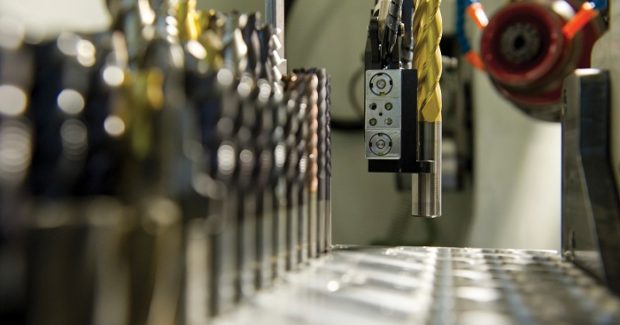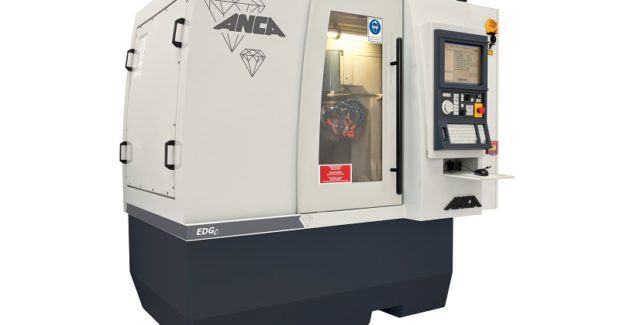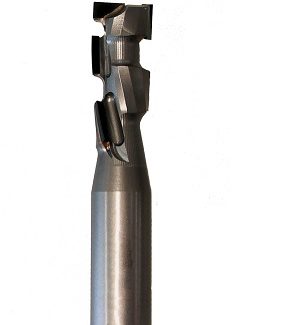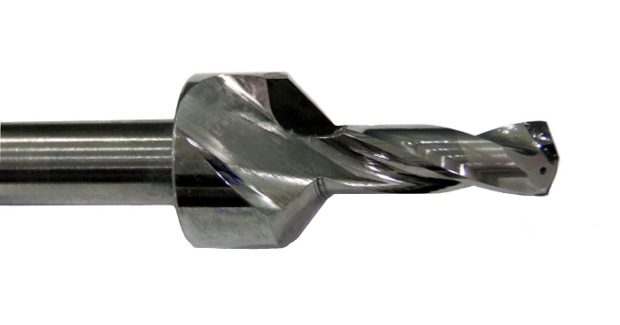Advanced Aerospace Tool Grinding
Perfect for grinding PCD tools used in machining composite materials for aerospace applications, the EDGe-Spark Erosion Power Generator from ANCA achieves an eroded finish with a surface roughness less than 0.2 µm Ra.
Posted: May 29, 2018
The process to manufacture a PCD tool is relatively unchanged: wire EDM the PCD segment to size and shape, pocket grind the tool body so the PCD segment can be located on the tool, and braze the PCD segment to the tool body. The final stages of the PCD tool production can traditionally involve multiple machines to complete the tool to the finished requirement. The proprietary EDGe-Spark Erosion Power Generator from ANCA Inc. (Wixom, MI) is ideal for these final stages of PCD tool production, resulting in an eroded finish with a surface roughness less than 0.2 µm Ra. ANCA partnered with Precorp, Inc. (Spanish Fork, UT), a U.S. manufacturer of PCD cutting tools and a key supplier to companies such as Boeing, to develop this technology, which is perfect for grinding PCD tools that are essential for machining composite materials often used in aerospace applications.
Depending upon the surface roughness requirements and whether an eroded or ground surface is required, the EDGe machine can eliminate some of the grinding operations and offers a unique market advantage by controlling the energy level of the eroding spark for optimum surface finish, material removal, and cycle time. This system also enables a double-ended HSK wheel spindle for eroding PCD and grinding carbide and HSS. The ability to manufacture a variety of tools up to 220 mm (8.66 in) diameter and weighing up to 20 kg (44 lb) makes the EDGe ideal for users looking to reduce the risk associated with moving into the growing PCD-side of the tool grinding business and is suitable for a wide variety of tools and applications. The system reduces machine setup time by performing erosion and grinding operations on one machine, which also enables improved tool accuracy due to a single setup, and fewer machines required.
“This generator monitors and controls the energy level of every spark for the resistivity of the substrate, be it tungsten carbide, diamond or cobalt binder,” explained Duncan Thompson, the EDGe product manager at ANCA. “It automatically detects the substrate and adaptively adjusts the gap distance for optimum surface finish, material removal and cycle time. What’s more, it provides exceptional operator feedback in real time.” Testing of tools eroded on the EDGe machine resulted with better figures for cutting force, exit burrs on CFRP and drill life than ground tools achieving a surface finish on tools of less than 0.2 µm Ra. The most recent comparative tests of the EDGe against competitive products prove its performance is equal in terms of material removal rates, cutting-edge quality and surface finish, yet at a more economical price point.
The machine has a fast, easy-to-use interface for inputting tool geometry, with software that includes integrated 3D graphics and is used to adjust power generator settings and create programs for a wide range of tool types. The tool design software provides the flexibility and user-friendliness for a wide range of tool types and applications for both ‘erosion’ and ‘grinding’ operations. The LaserPlus in-process tool measuring system can also be included to support accurate manufacture of PCD cutting tools.
ANCA Inc., 31129 Century Drive, Wixom, MI 48393, 248-926-4466, Fax: 248-926-4475, usainfo@anca.com, www.anca.com.







